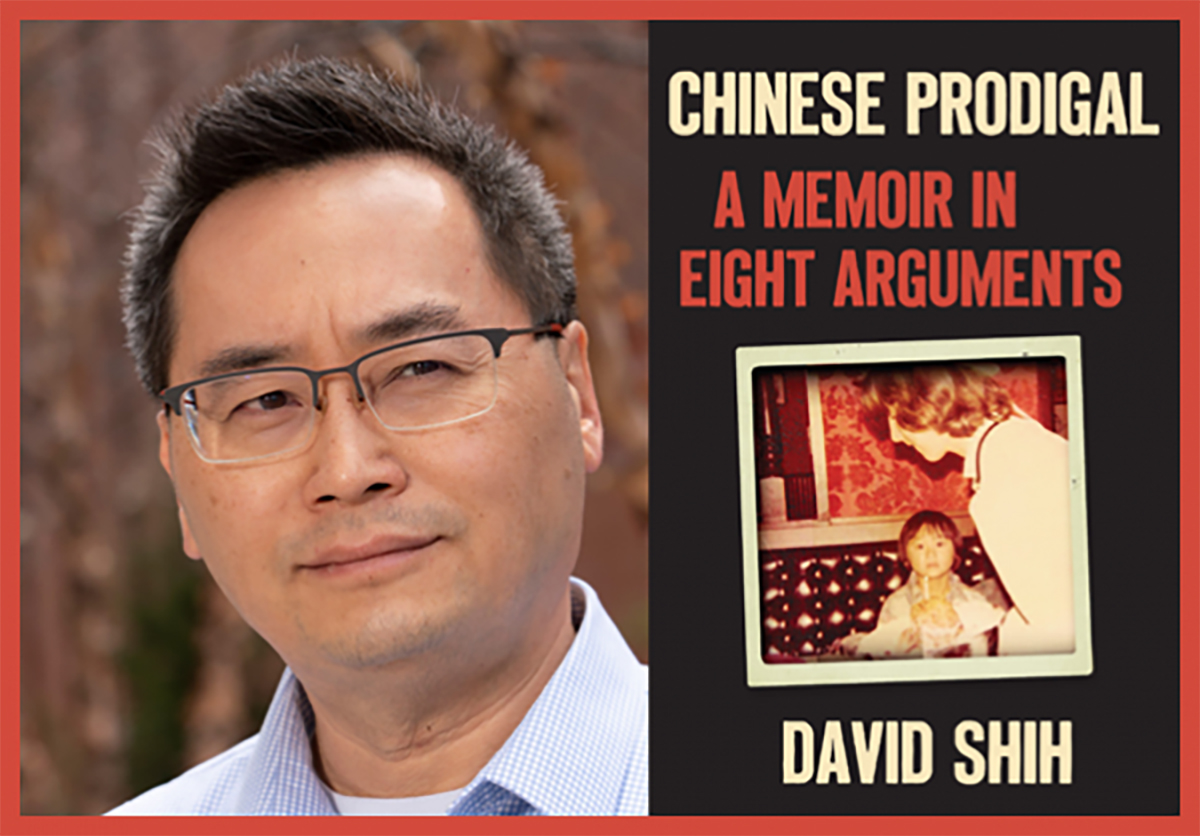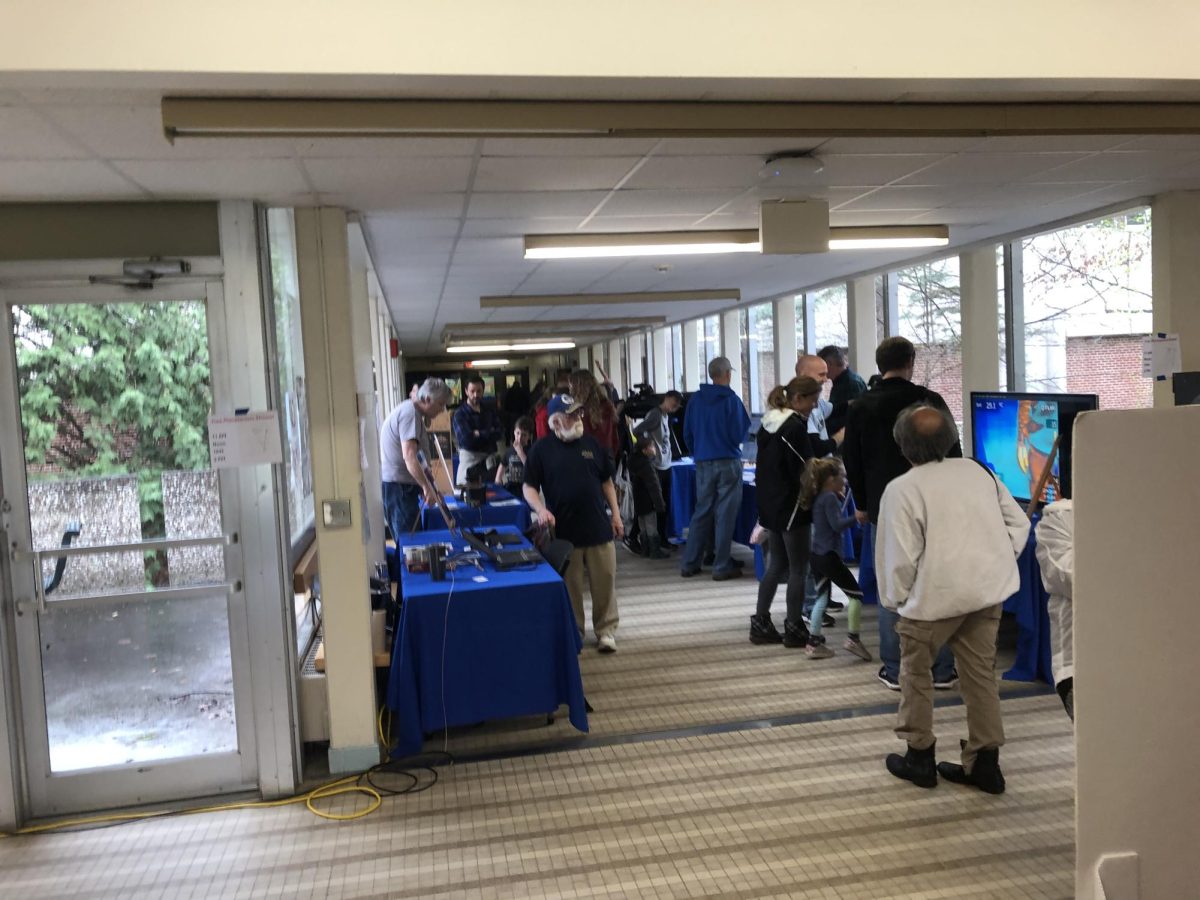Dr. David Shih, UW-Eau Claire English professor and an associate within the Department of REGSS, began writing his book, “Chinese Prodigal,” in 2019, shortly after the death of his father. Shih arrived too late to bid goodbye to his father before he passed from heart failure.
Shih said the creation of the book was mainly a result of his grieving and asking himself, “What took me so long?”
Robin Miller, librarian and event host, said McIntyre Library had the privilege of hosting the reading and celebratory reception of the debut novel on Sept. 27, roughly a month after its publication.
Miller said it was important to her that they “shine a light” on Shih and his work, as he is such an important member of the university’s faculty.
The event was held in the breezeway on the second floor of the library, where Shih read his favorite essay from the book, “Paper Son.” Miller said the faculty planned for around 40 people and over 50 attended.
Despite having previously participated in two readings for his book, Shih said that this was by far the most meaningful one for him.
“I was unexpectedly moved by it because I had gotten to see my students from the past few years,” Shih said.
Shih said that he saw this reception as a way to honor his students, to whom he believes his book would have been impossible without.
“So much of the book comes out of the discussion and the lessons I’ve taught over the years. And it’s a central part of my identity, that is, being a teacher,” Shih said.
“Chinese Prodigal” consists of eight essays. They are described by the author as both personal and argumentative; deconstructing the topics of racial hierarchy, assimilation and racism towards Asian Americans, as well as simply processing Shih’s grief after losing his father.
In terms of what Shih hoped his readers would reap from his book, Shih said he hoped it would make them reflect upon their own lives. Though the book was designed to educate readers on much of Asian American history, its purpose doesn’t stop there.
“The goal of the book isn’t simply for them to learn about Asian American history. There is a reason why I wrote some very personal chapters about my family,” Shih said.
Shih said he believes his “experiences aren’t unique in this regard,” and he hopes that children of immigrant parents, people in interracial relationships and people with complex relationships with their parents see his experiences and consider their identities. He hopes his experiences are useful to them in this way.
Both Shih and Miller said there is a great benefit for students to attend events such as this.
Miller said that when professors engage their students in heavier topics through events, performances and talks, they have the opportunity to teach their students beyond just a grading scale. They have the opportunity to actually enrapture them into the conversation and discussion.
Furthermore, both Shih and Miller said they hope UW-Eau Claire will host more events concerning heavier social justice topics similar to this one.
“I think it’s absolutely vital now, more than ever, to have these conversations given the political climate and given the way that these issues and even identities have become politicized in a way that I think can be quite harmful,” Shih said.
Tuong can be reached at [email protected].







